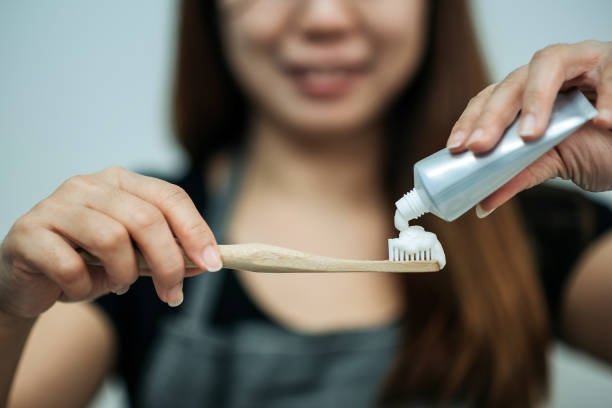Acne, a prevalent skin issue, necessitates carefully selecting skincare products, particularly cleansers. A gentle acne cleanser, like acne face wash, is crucial for treating acne effectively without causing skin irritation. This article provides an in-depth guide on choosing the right gentle acne cleanser tailored to individual skin needs.
Understanding Acne and Skin Types
To effectively manage acne, it is vital to understand various skin types and how they react to different acne treatments. Oily skin, characterised by excess sebum, tends to be more prone to acne due to clogged pores. While less prone to acne, dry skin can still suffer from breakouts and requires products that won’t exacerbate dryness. Combination skin has a mix of oily ‘T’ zones and dry areas, necessitating a balanced approach to acne treatment. Sensitive skin is easily irritated and demands the most gentle of products. By recognising your skin type, one can choose a cleanser that targets acne while respecting the skin’s unique characteristics.
Importance of Skin’s Natural Microbiome
The skin’s natural microbiome, comprising beneficial bacteria, is essential for maintaining skin health and protecting against pathogens. Gentle acne cleansers should support this delicate balance. Disruption of the microbiome can cause skin issues, including increased acne. Products containing ingredients that nourish and protect the microbiome, such as prebiotics and probiotics, can enhance the skin’s natural defences. A balanced microbiome contributes to a reduced incidence of acne and a healthier skin environment.
Ingredients to Avoid in Acne Wash
Selecting a gentle acne cleanser also involves knowing which ingredients to avoid. Alcohol, commonly found in acne products, can overly dry and irritate the skin. Sulphates, which create a lathering effect, can strip the skin of its oils, leading to irritation and exacerbating acne. Synthetic fragrances and parabens, often used in cosmetic products, may cause allergic reactions and skin sensitivities. Avoiding these harsh ingredients ensures that their acne treatment is effective without harming the skin’s health.
Cleansers for Sensitive Skin
Choosing an acne cleanser can be particularly challenging for those with sensitive skin. Selecting products free from irritants like artificial fragrances, dyes, and harsh chemicals is crucial. Cleansers with soothing ingredients such as cica, chamomile, and green tea are beneficial as they calm the skin and reduce inflammation. Products labelled hypoallergenic or specifically designed for sensitive skin are generally safer options. These products cleanse effectively while minimising the risk of irritation and discomfort.
Effective Ingredients in Gentle Acne Cleansers
Effective acne cleansers for gentle skin care should contain ingredients that combat acne without irritating. Salicylic acid, a mild exfoliant, helps unclog pores and reduce inflammation without harsh effects. Hyaluronic acid and glycerin are excellent for retaining moisture, ensuring the skin remains hydrated. Niacinamide, known for its anti-inflammatory properties, can improve skin texture and reduce acne-related redness. These ingredients work together to treat acne gently, making them ideal for inclusion in acne cleansers for all skin types.
Balancing pH Levels in Cleansers
Maintaining the correct pH balance is critical for healthy skin, especially when dealing with acne. The skin’s natural pH is slightly acidic, which helps to protect against harmful bacteria and environmental pollutants. Using a cleanser with a similar pH level helps preserve the skin’s acid mantle, a thin acidic film on the skin’s surface that acts as a barrier. A pH-balanced cleanser supports the skin’s natural defences, reducing the likelihood of irritation and acne outbreaks.
Customising Your Acne Cleansing Routine
Personalisation is key in managing acne effectively. Customising your cleansing routine based on skin type and its response to different products can significantly enhance the effectiveness of acne treatment. Some individuals may benefit from using a gentle cleanser once or twice a day, while others might need to alternate between different types of cleansers to address specific skin concerns. Observing how your skin responds to various products and adjusting your routine accordingly is vital in achieving optimal results in acne management.
The Role of Moisturization in Acne-Prone Skin Care
While cleansing is a fundamental step in acne management, moisturisation is equally crucial, especially when using acne cleansers. Even if oily, acne-prone skin requires proper hydration to maintain its health and resilience. Moisturising helps to replenish the skin’s natural moisture barrier, which acne treatments and cleansers can disrupt.
A common misconception is that moisturising can worsen acne, but the reality is that dehydrated skin can lead to increased oil secretion, which may exacerbate acne. Therefore, choosing a non-comedogenic (non-pore-clogging) moisturiser is essential. Ingredients like hyaluronic acid, known for its hydrating properties without adding oiliness, and ceramides, which help restore the skin barrier, benefit acne-prone skin.
Additionally, some moisturisers contain acne-fighting ingredients like salicylic acid in mild concentrations, offering a dual benefit of hydration and acne treatment. Applying moisturiser after cleansing is important to lock in moisture and protect the skin. This step should not be overlooked, as it ensures that the skin remains balanced, hydrated, and less prone to irritation from acne treatments.
Conclusion
Finding the perfect gentle acne cleanser, like acne face wash, involves understanding your skin type, supporting the skin’s natural microbiome, avoiding harsh ingredients, selecting products suitable for sensitive skin, and focusing on effective yet gentle ingredients. Additionally, considering the cleanser’s pH balance and customising the cleansing routine are crucial steps. With a thoughtful and informed approach, one can effectively manage acne while nurturing and maintaining healthy, balanced skin.



